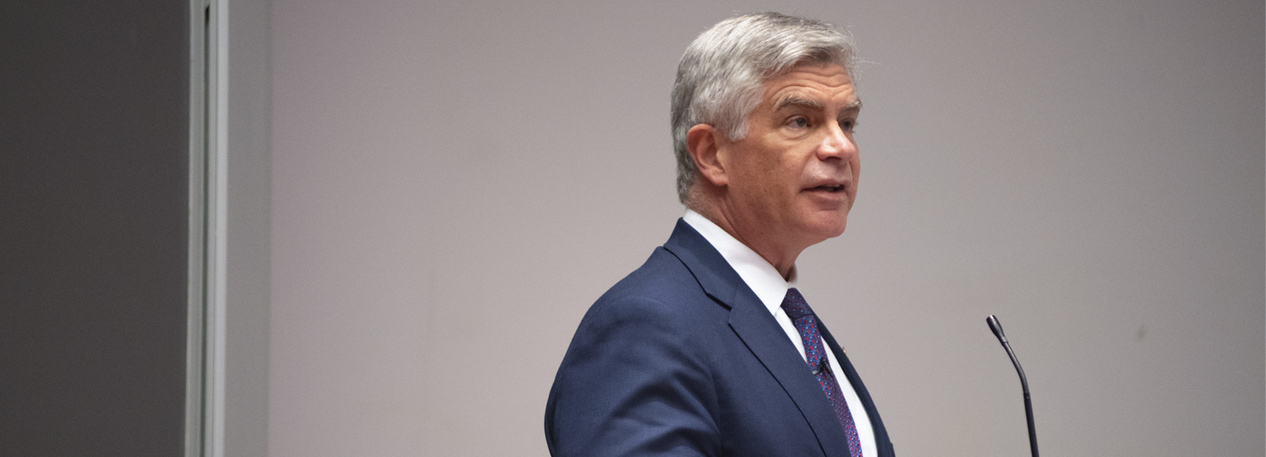For immediate release
Contact: Daneil Mazone, Media Relations, 215-574-7163
Philadelphia, PA — Benjamin Franklin was able to rise up from meager circumstances to great prosperity, but today barriers to economic opportunity prevent many low-income children from reaching their potential, said Federal Reserve Bank of Philadelphia President Patrick T. Harker in remarks delivered at the Ben Franklin Birthday Celebration.
Harker said the Third District offers a “microcosm of the issues and economics we see around much of the country,” and because of that, the Philadelphia Fed is in a unique position to find real, sustainable solutions for some of the nation’s most intractable problems. “Our aim at the Philadelphia Fed is to make sure economic growth is inclusive and that every person has access to the tools needed to achieve his or her fullest potential,” Harker said. “We want to use our research and our convening abilities to find solutions that can be applied across the Third District and the country.”
Harker said understanding these barriers is integral to fostering growth across demographics and that the Federal Reserve’s research adds important “depth and contour” to our overall view of the economy. “We should all remember that our neighbors’ economic fortunes are tied to our own,” Harker said.
Harker pointed to research from Raj Chetty, an economist at Stanford, which found where a child grows up has an effect on how he or she fares later in life. “The likelihood of a child born into the bottom fifth of the income distribution reaching the top fifth varies markedly across the United States, from a low of 4.4 percent in Charlotte, North Carolina, to a high of 12.9 percent in San Jose, California,” said Harker. “Philadelphia falls in between at 7.4 percent.” These are all “lower than we should accept,” he said.
Harker noted that “Franklin saw the value of helping people and places in the future” by leaving trusts to fund apprenticeship and civic programs in Philadelphia and Boston in his will. He added: “At the heart of this push for economic mobility is the quintessentially American belief that everyone should have an equal chance at success.”
The Federal Reserve Bank of Philadelphia helps formulate and implement monetary policy, supervises banks and bank savings and loan holding companies, and provides financial services to depository institutions and the federal government. It is one of the 12 regional Reserve Banks that, together with the Board of Governors in Washington, D.C., make up the Federal Reserve System. The Philadelphia Federal Reserve Bank serves eastern Pennsylvania, southern New Jersey, and Delaware.
